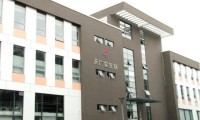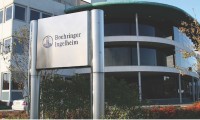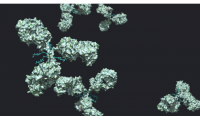-
CD3/BCMA/GPRC5D Tri-Specific Antibody MBS314 Approved in Phase I/II Clinical Trial for the Treatment of Multiple Myeloma
- Source: drugdu
- 146
- January 3, 2024
-
Bristol Myers Squibb to Pay Up to $8.4 Billion to Codevelop Antibody-Drug Conjugate With SystImmune
- Source: drugdu
- 131
- December 14, 2023
-
Boehringer Ingelheim and IBM announce AI antibody drug discovery partnership
- Source: drugdu
- 108
- December 4, 2023
-
Senate Democrats press Sanofi and AZ for answers as ‘unprecedented’ demand spurs shortage of RSV antibody Beyfortus
- Source: drugdu
- 199
- November 22, 2023
-
BioNTech acquires right to Biotheus’ bispecific antibody candidate in deal worth over $1bn
- Source: drugdu
- 102
- November 10, 2023
-
Daiichi Sankyo, Merck Set to Collaborate on Three DXd Antibody-Drug Conjugates
- Source: drugdu
- 135
- October 27, 2023
-
Almirall and EpimAb Biotherapeutics enter $210m bispecific antibody partnership
- Source: drugdu
- 134
- October 17, 2023
-
Almirall and EpimAb partner to develop bispecific antibody therapies
- Source: drugdu
- 218
- October 16, 2023
your submission has already been received.
OK
Subscribe
Please enter a valid Email address!
Submit
The most relevant industry news & insight will be sent to you every two weeks.













